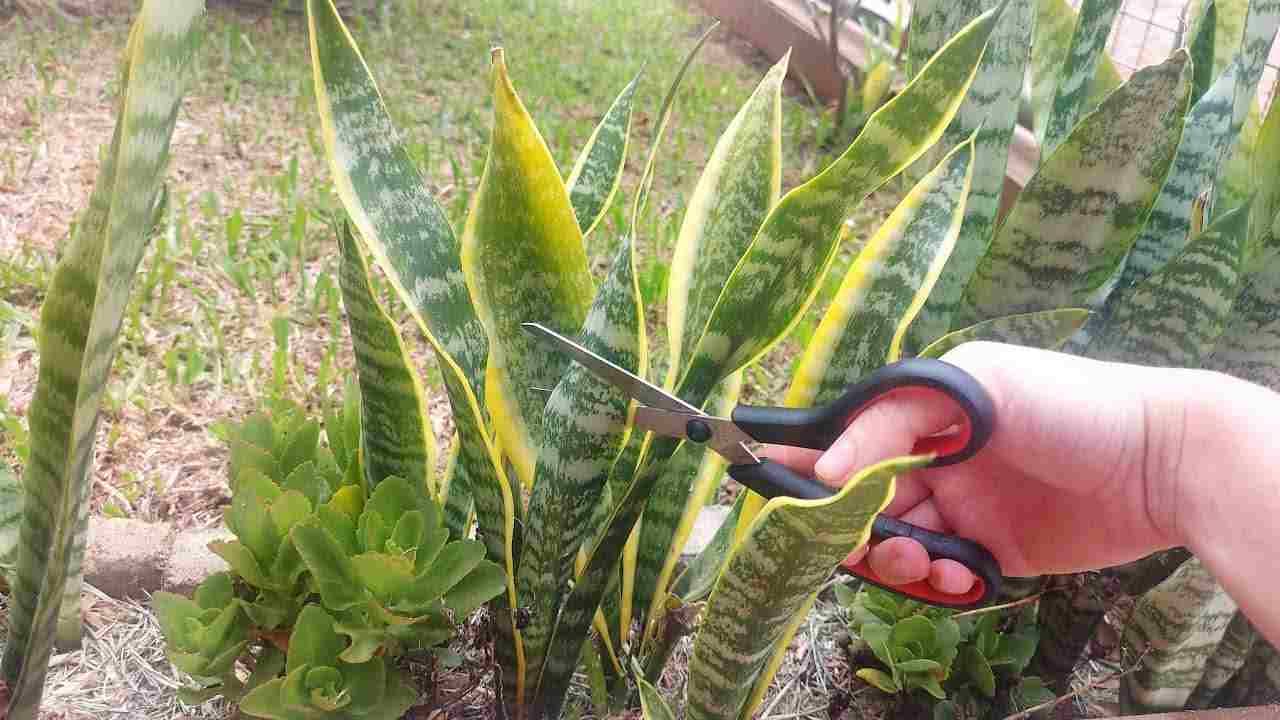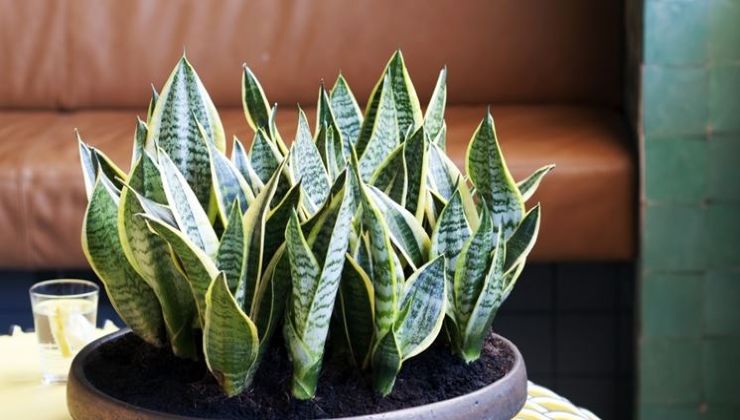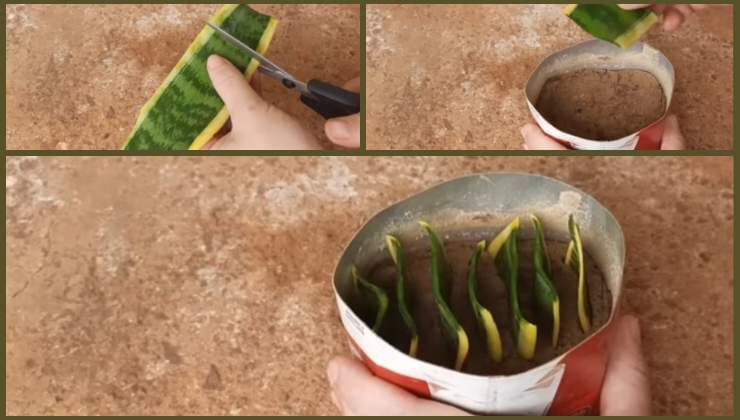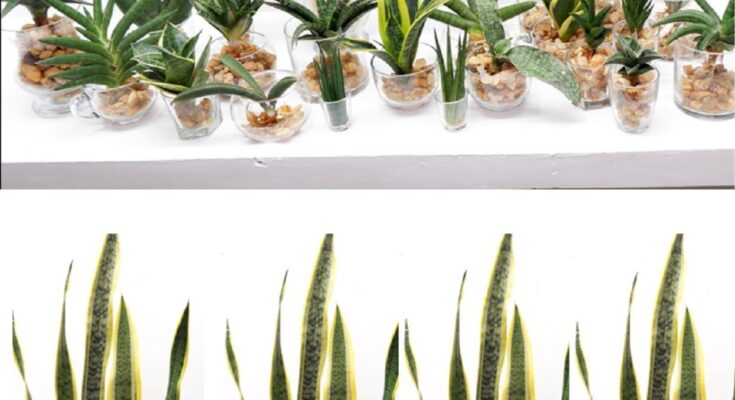
Mother-in-law’s tongue, few people know this secret: you will be surprised
Mother-in-law’s tongue, the secret to making this beautiful plant grow quickly? Here. Only a few people know about it. You will be surprised by the incredible discovery.

Ever heard of mother-in-law’s tongue? It is a plant, despite the name, really very beautiful. Here’s how to accelerate its growth with this infallible technique: you will be amazed.
All the characteristics of this amazing plant
Semi-succulent plant whose botanical name is Sansevieria trifasciata, it is better known by the name of mother-in-law’s tongue. It belongs to the Asparagaceae family and is native to the African continent.
Why does it have such a particular name? Because of its pointed leaves that metaphorically recall the “saccent tongues” of mothers-in-law. Perfect for planting in gardens, it also grows well in the apartment. Pay attention only to its height that can exceed 90 centimeters!

As for the leaves, they are few, short, pointed and green (light or dark) with yellow or gray edges. Easy to care for, it does not require too much attention as it can adapt to any environment and resist attacks by various parasites. It tends to grow very slowly and usually produces only 4 new leaves each year.
However, it is among the most long-lived plants in the world, capable of living even 2 years and more as long as it has the right soil that must be arid. It requires a lot of light and little humidity, so be careful where you place it!
Do you know how you could speed up its growth or even give life to a new plant only starting from the leaves of a mother plant? You only need this ingredient.
Mother-in-law’s tongue, the secret to rapid reproduction
Mother-in-law’s tongue is a plant that grows very well in any environment, even in an apartment. It needs a lot of light and not too much water to survive.
Since it is native to Africa, it adapts to all soils, especially arid ones. There are many species, more than 100. Among the most popular we mention Sansevieria trifasciata, Sansevieria cylindrica and Sansevieria zeylanica.
Although they are plants that are easy to care for, it is not said that they can grow quickly. Yet there is a technique that allows you to give birth to different species only starting from a mother leaf. Here is the secret that only a few people know.
To make sure you have many mother-in-law tongues, and maybe even belonging to different botanical strains, you have to get only one natural ingredient: cinnamon. It is precisely this spice that will help mother-in-law’s tongue to reproduce quickly.
Here’s how to do it. From a large plant, cut a leaf and cut it into pieces. Take a jar and fill it with cinnamon. Then, place these cut leaves inside the container that you have filled with this spice.
Wait 2 weeks and enjoy the extraordinary show: roots will have sprouted just below the leaves! Transfer the latter now into a pot containing soil and let your mother-in-law’s tongue grow healthy, vigorous and strong!

Here is the secret that will allow you to have this plant whenever you want just by cutting the leaf of a mother plant. You can also try different grafts or try to give life to other species.
The mother-in-law’s tongue is a plant also suitable for the care of those who are not particularly experienced in the garden. Many features that make it perfect to keep at home or in an apartment:
- it is resistant to pests;
- hardly gets sick;
- It does not require too much care.
Preferred by many for ornamental purposes, in the oriental tradition of Feng Shui, the mother-in-law’s tongue is acquired or given away also in order to ward off bad energy and to attract good luck and money into the house.
Did you also know that it is a plant with medical properties? With its leaves you can prepare a decoction that helps reduce intestinal swelling or soothe wounds not yet healed.
In addition to the leaf technique we talked about above, there are two other methods for the reproduction of mother-in-law’s tongue. The first is that of division.
In this case you have to remove your plant from the pot, cut the rhizome (i.e. the stem) and plant it in a new pot. The second technique is the simplest and consists simply of planting the seeds in arid soil.
Regardless of the method you decide to adopt for its reproduction, always remember that the mother-in-law’s tongue needs a lot of light: if you place it in a dark or shady place, already after a few hours you will see the leaves wither.
Again, remember not to water it excessively because excess water can lead to the proliferation of fungi that find fertile place in the soil in which to reproduce. Today you learned some important notions about mother-in-law’s language: the secret to fast and guaranteed playback.


